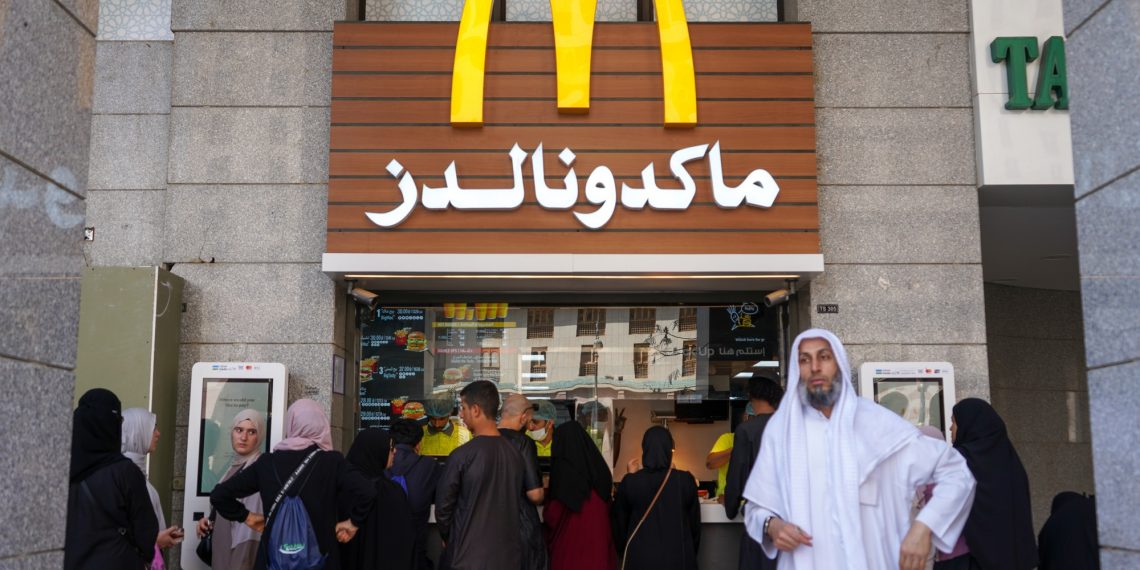Saudi Arabia’s Vision 2030 aims to create a more business-friendly environment, attracting both local and international investors. The government has simplified business setup processes through reforms like streamlined licensing, tax incentives, and better legal protection for foreign investments.
Foreign entrepreneurs entering the Saudi food and beverage market must navigate specific legal processes. Two common scenarios include launching a new restaurant with a Saudi partner and expanding an international franchise. The latter is often preferred as it helps navigate local laws and provides market insights.
Establishing a New Restaurant (Joint Venture)
Most foreign investors form a limited liability company (LLC) with a Saudi partner. An LLC is the typical structure, allowing one or more shareholders (up to 50). A foreign investment license from the Ministry of Investment (MISA) is necessary. Foreign ownership can range from minority to full, depending on sector rules. Restaurants, classified under ‘trading,’ traditionally required a Saudi partner with at least 25% ownership unless the foreign investor met certain conditions for full ownership. Typically, joint ventures have the foreign investor holding up to 75% and the Saudi partner at least 25%.
The LLC needs a resident general manager, a local office, and commercial registration.
Licensing Requirements
Approvals from several authorities are needed:
- MISA: Obtain a foreign investment license, now called an Investment Registration Certificate.
- Ministry of Commerce (MOC): Register the company and obtain a Commercial Registration (CR) certificate. Articles of Association must be drafted, notarized, and fees paid.
- Municipal License: Before opening, a license from the local municipality is required, ensuring compliance with health and safety standards.
- Saudi Food and Drug Authority (SFDA): Compliance with SFDA regulations on food safety and labeling is essential.
Ownership Shares and Capital Requirements
Foreign investors can own shares in the restaurant sector, but specific rules apply:
- Ownership Percentages: If classified as ‘trading,’ a Saudi partner must hold at least 25% ownership unless exempted.
- Minimum Capital: MISA sets practical capital requirements. For foreign investors in trading ventures with a local partner, historically, SAR 20 million was needed, but newer licenses might require less.
Foreign investors must have good financial standing, relevant experience, and comply with Saudisation policies, requiring the hiring of Saudi nationals. Work visas for foreign staff depend on Saudisation compliance.
Government fees include the MISA license, MOC registration, and Chamber of Commerce membership. Municipal licensing also incurs fees.
Startup Capital and Expenses
Paid-up capital must be deposited in a Saudi bank post-incorporation. The entire process, from application to opening, takes about two to four months. Construction and fit-out might extend the timeline.
Incentives and Restrictions
Saudi offers incentives like tax breaks and customs duty exemptions under Vision 2030. However, restaurants must comply with Islamic laws, prohibiting alcohol and requiring halal-certified meat.
Opening an International Franchise
Franchise agreements must comply with Saudi Arabia’s Franchise Law, requiring registration with the Ministry of Commerce. A Disclosure Document must be provided to the franchisee before signing.
Intellectual Property Protection
Franchisors should register trademarks with the Saudi Authority for Intellectual Property and consider patenting proprietary items. NDAs are recommended to protect trade secrets.
Other Permissions
Additional licenses are needed for activities like catering or distribution.
Franchisor-Franchisee Financial Terms
Royalties and fees are subject to a 15% withholding tax when remitted abroad. Terms must be disclosed in the franchise agreement.


